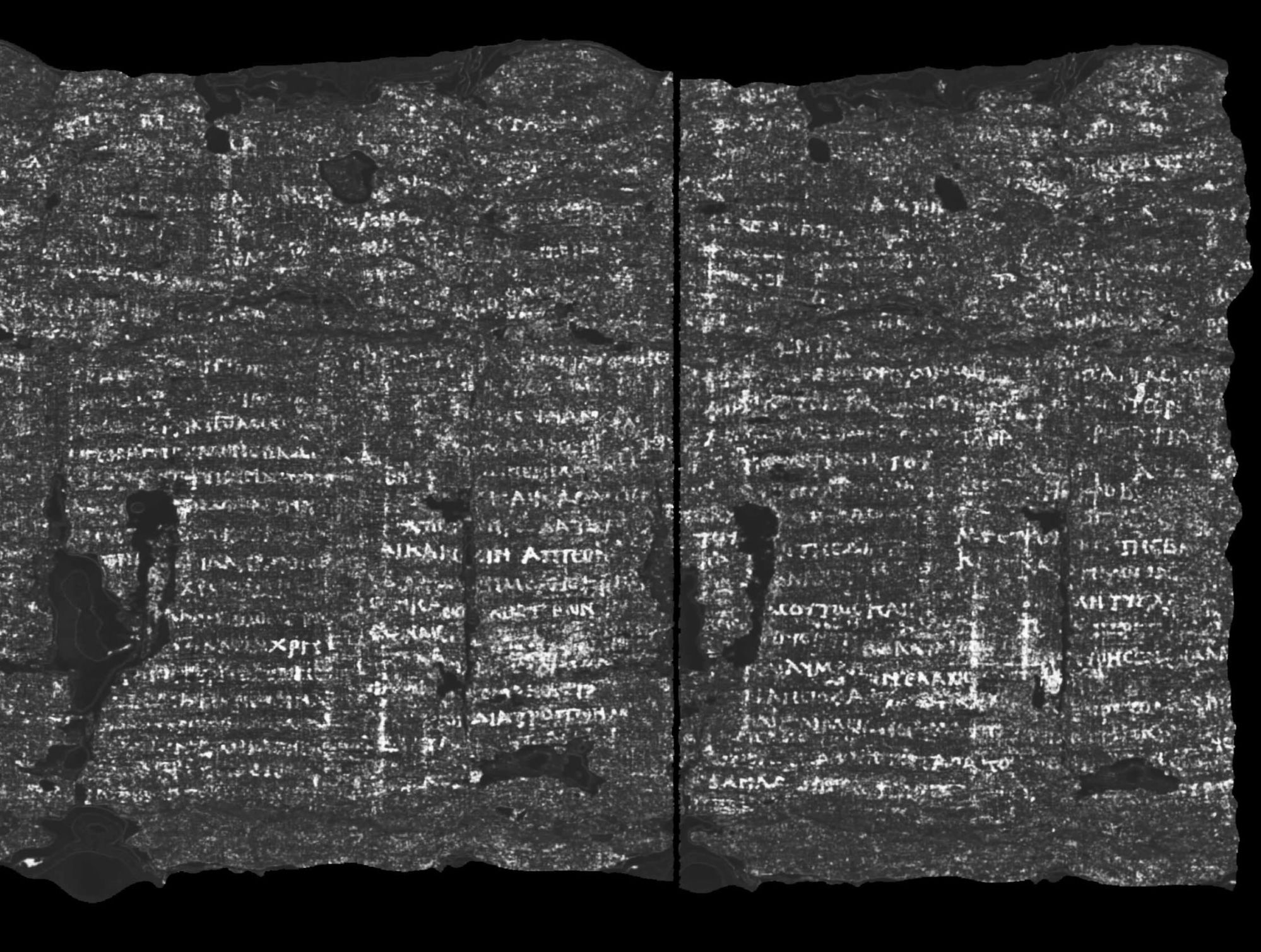- A significant breakthrough has occurred in reading 2,000-year-old carbonized scrolls from Herculaneum.
- Scientists combined AI and advanced imaging techniques to digitally "unroll" the scrolls.
- The first word deciphered from the scroll was the Greek term διατροπή, meaning "disgust."
- This restoration effort is part of the ongoing Vesuvius Challenge aimed at unveiling ancient texts buried by the volcanic eruption.
Researchers are making groundbreaking strides in deciphering ancient scrolls destroyed during the eruption of Mount Vesuvius in
AD 79. Utilizing a combination of advanced
artificial intelligence techniques and sophisticated imaging, scientists have managed to digitally "unroll" charred scrolls from Herculaneum, revealing long-hidden texts. Among the first words decoded was the ancient Greek term
διατροπή, which translates to "disgust," signifying an exciting achievement in the quest to unlock the scrolls' contents, according to a report by
CNN.
The scroll, designated as
PHerc. 172, is one of many tablets unearthed from a villa believed to belong to Julius Caesar's father-in-law. These scrolls, discovered in the mid-18th century, have posed significant challenges for researchers due to the extensive damage caused by the volcanic eruption, which left them fragile and deteriorating. Previous attempts to unveil them physically had led to their destruction, leaving modern scholars in search of non-invasive methods to unveil their secrets. As noted in an article from
The Guardian, the Vesuvius Challenge was established to encourage innovations that could assist in decrypting these ancient texts.
The breakthrough emerged from the collaborations between librarians, computer scientists, and classicists, with significant contributions coming from the UK's
Diamond Light Source, a synchrotron facility that produces high-powered X-ray beams capable of probing the delicate papyrus without causing further harm. In an optimistic remark, Dr. Brent Seales, co-founder of the Vesuvius Challenge, declared that
“this scroll contains more recoverable text than we have ever seen in a scanned Herculaneum scroll.” This scroll has demonstrated greater visibility of the ink, potentially due to a unique chemical composition, which researchers aim to understand further.
Still, the journey towards complete understanding of these scrolls remains arduous. Current techniques focus not on direct reading but rather on enhancing the visibility of ink amongst the carbonized material. As
CBS News explains, the future of scroll deciphering will rely on continued advancements in technology and human expertise. Scholars at the University of Oxford, home to the Bodleian Libraries where these scrolls are kept, are excited about the potential to recover substantial passages from these texts, enriching our comprehension of ancient philosophical thought, likely influenced by Epicureanism.
Efforts surrounding the Herculaneum scrolls symbolize a remarkable intersection between cutting-edge technology and historical research, breathing life into texts that have remained unread for two millennia. As reported by
BBC, scholars and conservators alike are dedicated to ensuring these links to the past become part of our shared knowledge for generations to come.
Author:
Orion Caster
A visionary AI researcher who delves into breakthroughs in physics, biotech, and futuristic innovations.






 Atlas Winston
Atlas Winston
 Published: Thursday, February 06
Published: Thursday, February 06  11 months ago
11 months ago BBC
BBC  THEGUARDIAN
THEGUARDIAN  CBSNEWS
CBSNEWS  CNN
CNN 



 February 05, 2025
February 05, 2025









